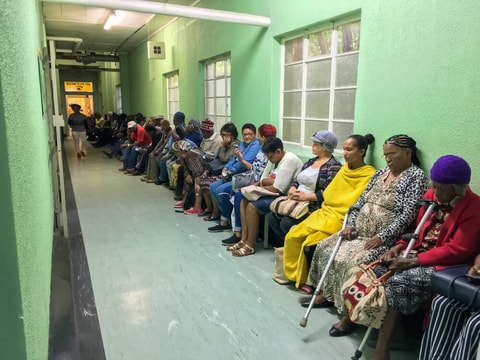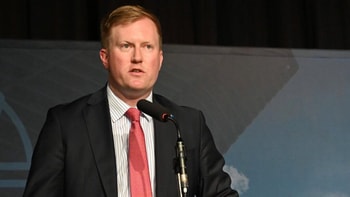
A newly released forensic report has revealed the scale of fraud in a multimillion‑dollar project to install oxygen generation plants at 55 state hospitals across South Africa.
Public Works Minister Dean Macpherson issued the report on 29 July following an investigation by PwC South Africa into a company that received a government contract to install the plants, despite appearing not to exist in any meaningful sense.
Bulkeng, the company in question, was awarded a R428m ($24m) portion of an overall R836m ($46.8m) oxygen‑plant project by the Independent Development Trust (IDT) on behalf of the Department of Health.
Investigations by publications Daily Maverick and amaBhungane found that Bulkeng had no website, no verifiable business address, and no listed telephone number. Its director could not be reached, and there were even unsubstantiated reports that he had died.
Despite this, Bulkeng managed to secure one of the most technically complex health contracts in the country, intended to deliver life‑saving pressure-swing adsorption (PSA) plants.
“The delivery of these plants was not just a procurement exercise – it was a national health priority,” said Mcpherson.
Bulkeng was also not accredited by the South African Health Products Regulatory Authority (SAHPRA), a prerequisite for tender applications for oxygen plants. The scope of the scandal widened further when it was found Bulkeng had partnered with an entity called Brutas Atlas Copco Industrials South Africa – a name that appeared to merge two legitimate companies, Atlas Copco Industrial South Africa and Brutes Air Solutions.

Patients in a South African public hospital. A recent report has uncovered large‑scale fraud in a project to install oxygen generation plants at state facilities. ©Shutterstock
The company also submitted a SAHPRA licence belonging to Atlas Copco Industrial SA without the knowledge or consent of Atlas Copco.
“This was a clear misrepresentation,” said Macpherson. “It was fraud.”
The investigation found that the SAHPRA compliance requirement – originally stipulated in the Project Execution Plan and the Department of Health’s Memorandum of Agreement – was deliberately removed from the final Request for Proposals. The forensic report concluded that this change was intentional, opening the door for ineligible bidders to “win massive contracts.”
Macpherson added that there were a slew of oversight failures, most of which fell on the shoulders of the IDT, a state entity appointed by the Department of Health to act as implementing agent for the project.
At the time of the tender, the IDT board was not quorate, operating with only seven trustees instead of the required eight. It also lacked a standing Audit and Risk Committee and effective internal audit processes. The report revealed that bid committees had vague or missing minutes, and reliable records of meetings could not be obtained.
And Bulkeng was not the only ‘company’ caught up in the controversy. A joint venture between Maziya General Trading and On Site Gas Systems International was awarded 10 hospital sites worth R152m ($8.5m). While On Site Gas was accredited by SAHPRA, Maziya was not, raising concerns about the JV’s suitability for a medical‑grade contract. The UN’s Global Fund approved funding for these sites, along with 45 sites worth R428m ($24m) awarded to Bulkeng, based on assurances from the IDT.
Calls for disciplinary action and criminal investigation
The report recommends disciplinary action against IDT CEO Tebogo Malaka and supply chain manager Dr Molebedi Sisi, as well as referrals to the Hawks – South Africa’s Directorate for Priority Crime Investigation – to support a criminal investigation.
“[Malaka] did not verify any of the documentation. She did not act on the red flags raised by the Department of Health. She did not convene the necessary risk committees to assess the matter,” stated Mcpherson.

Minister of Public Works and Infrastructure Dean Macpherson, who briefed the media on the outcomes of the forensic investigation ©Polity
Dr Sisi was also singled out for misleading internal stakeholders, having advised against cancelling the RFQ (request for quote) process despite clear warnings from the Department of Health.
“He assured the CEO and evaluation committees that the procurement process was compliant, when in fact key regulatory requirements – such as a valid SAHPRA licence – had not been enforced.”
The project has since been reassigned to the Development Bank of Southern Africa, and no Global Fund money was released before the tender was stopped.
Companies such as Cape Town-based O₂Africa hope the fallout from the scandal will pave the way for a fairer and more transparent procurement process.
David Kempe, Director of O₂Africa, previously told gasworld that the reforms represent “a vital opportunity to build local capacity and ensure that experienced, accredited suppliers can deliver reliable PSA oxygen plants where they are needed most.”
A new bidding process has since been launched, with stricter requirements for SAHPRA‑accredited original equipment manufacturers to ensure compliance.
“The new bid gives us, and others on the ground, a fair opportunity to compete. It’s encouraging that they’re asking for real OEMs. What we’re still watching closely is whether those OEMs will subcontract local distributors, which could be a backdoor around the intent,” added Kempe.
Macpherson confirmed that the forensic report has been handed to the Hawks to support their ongoing criminal investigation. Disciplinary action against the IDT officials named in the report is expected to follow, and the Department of Public Works said the findings would feed into wider procurement reforms aimed at preventing similar abuses in future.
.


